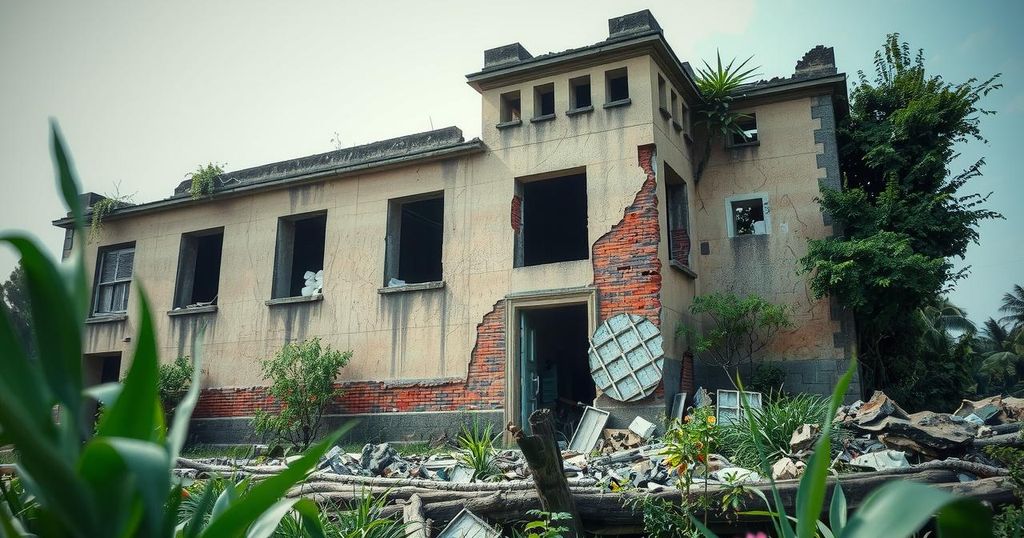Turkey’s Earthquake Recovery: Ongoing Challenges and Psychological Impact

Two years after the earthquakes, Turkey faces significant recovery challenges, with less than a third of destroyed homes rebuilt and half a million people living in temporary shelters. The psychological impact remains severe, affecting many individuals who continue to relive their traumatic experiences. Progress has been made in debris clearance, yet government promises for housing remain largely unfulfilled, exacerbating the situation.
Two years after Turkey’s catastrophic earthquakes, the aftermath remains profound. Less than a third of the destroyed homes have been rebuilt, and around half a million individuals still reside in temporary shelters such as container homes or tents. Psychological trauma continues to plague the affected population, with many reliving their experiences of loss and instability.
Mr. Sabahattin, a local barber in Antioch, tries to maintain a semblance of normalcy amidst devastation. Once thriving near key historical sites, his shop now faces rubble and wasteland. He reports a drastic decline in clientele, managing only three to four customers daily, challenging his ability to sustain the business.
Survival is driven by necessity rather than economics, as he is determined to avoid returning to the container unit where he has lived for two years. The 2023 earthquakes, registering magnitudes of 7.5 and 7.8, resulted in the loss of over 60,000 lives and left half a million people in Turkey with inadequate housing solutions that contribute to ongoing hardships.
Sabahattin describes his transition from a spacious apartment to a cramped 21-square-meter container. He acknowledges the lack of improvement over the years, expressing feelings of entrapment and destruction—not only in their surroundings but also internalized within their psyche due to the authorities’ negligence.
Despite some progress, including the demolition of damaged structures and preparation for new construction, the pace of rebuilding remains disappointing. Turkish President Erdoğan promised 319,000 new homes by the end of 2023, but as of now, only approximately 201,580 homes have been completed, far fewer than anticipated.
The report from the Association of Earthquake Victims highlights unmet promises and deplorable living conditions faced by many in the 400 container cities established in the aftermath of the disaster, where families often contend with severe overcrowding and inadequate infrastructure.
The destruction of communities has also led to significant emigration and economic challenges, resulting in an alarming increase in child labor as families struggle to survive. UNICEF warns of high absenteeism rates in schools among affected children, further compounding the long-term impacts of the earthquake.
The ongoing trauma is echoed by healthcare professionals, who note difficulties in adjusting to life in temporary shelters. Psychological assessments indicate a staggering percentage of individuals suffering from post-traumatic stress, anxiety, and depression, suggesting a dire need for continued support and resources for recovery.
Turkey’s devastating earthquakes on February 6, 2023, caused unprecedented destruction across southeastern Turkey and northern Syria. This natural disaster killed over 60,000 individuals and left millions homeless, fundamentally altering the region’s demographics and living conditions. Two years later, the recovery process has been sluggish, with significant portions of the population still living in makeshift shelters and enduring ongoing psychological impacts.
The aftermath of Turkey’s earthquakes serves as a stark reminder of the challenges faced by communities in disaster recovery. With insufficient housing solutions, ongoing psychological trauma, and unmet governmental promises, the situation remains critical for many survivors. It is imperative for authorities and humanitarian organizations to address these issues promptly to facilitate healing and reconstruction.
Original Source: english.elpais.com








